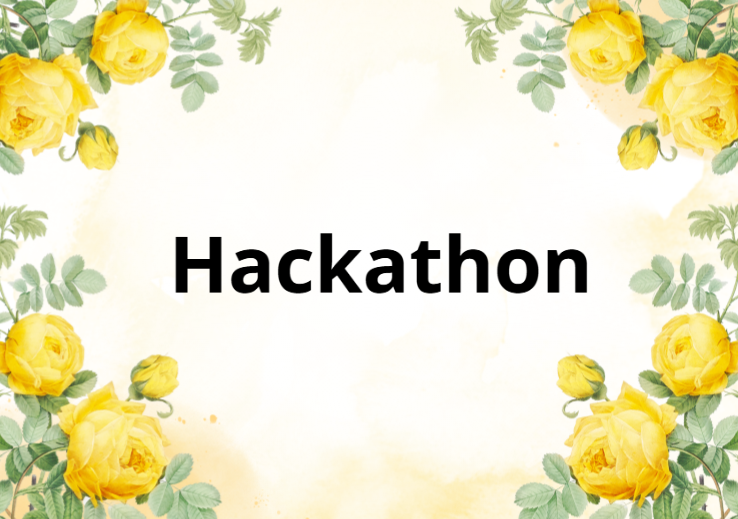A hackathon is a creative event where people come together to design, build, and present new ideas — usually related to technology, apps, or innovation. The word “hackathon” combines “hack” (meaning to build or solve problems quickly) and “marathon” (a long and continuous effort).
These events are not just for expert coders. Designers, business students, engineers, and even beginners can take part. The main goal is to learn, create, and collaborate.
What Is a Hackathon?
A hackathon is a short-term event (usually 24 to 72 hours) where teams work on solving a real-world problem or creating something new. Participants often choose a topic such as health, education, environment, or finance. They brainstorm, code, design, and present a working prototype to judges by the end of the event.
Hackathons are usually organized by companies, universities, or communities to inspire innovation and teamwork.
Why Are Hackathons Important?
Hackathons are valuable because they bring together people from different backgrounds to work toward one goal. They encourage creativity, teamwork, and problem-solving skills. Here are a few key reasons why hackathons matter:
- Skill Development: Participants learn new tools, programming languages, and teamwork skills.
- Networking: You meet industry experts, mentors, and like-minded peers.
- Career Opportunities: Many companies offer internships or jobs to top participants.
- Innovation: Fresh and unique ideas often come out of hackathons.
- Confidence Building: Presenting your idea in front of judges helps boost public speaking and confidence.
Types of Hackathons
There are many kinds of hackathons depending on the goal and theme. Here are some popular types:
- Corporate Hackathons: Organized by companies to solve internal business challenges or discover new talent.
- Student Hackathons: Hosted by schools or universities to help students learn through practical projects.
- Online Hackathons: Participants join virtually from around the world.
- Themed Hackathons: Focused on specific issues like healthcare, climate change, or education.
- Social Impact Hackathons: Aim to create solutions that help society or the environment.
How Does a Hackathon Work?
Most hackathons follow a simple structure:
- Registration: Participants sign up individually or in teams.
- Kickoff: Organizers introduce the theme, rules, and judging criteria.
- Idea Generation: Teams brainstorm and select the best idea to work on.
- Development Phase: Teams build a prototype using coding, design, and research.
- Mentorship: Experts guide participants and give feedback.
- Presentation: Teams present their final product to a panel of judges.
- Judging & Awards: Winners are chosen based on creativity, usefulness, and technical skill.
What You Can Learn at a Hackathon
Hackathons are not just about winning prizes — they are about learning and growing. You can:
- Learn coding and design skills through practice.
- Understand how to work in teams under pressure.
- Gain experience in problem-solving and project planning.
- Learn how to pitch your ideas confidently.
- Improve your communication and leadership skills.
Tips for Success in a Hackathon
Here are some useful tips to make your hackathon experience better:
- Plan Your Idea Early: Think of a simple but creative idea that solves a real problem.
- Work as a Team: Respect everyone’s opinions and divide tasks wisely.
- Manage Time: Focus on creating a working model rather than a perfect one.
- Ask for Help: Don’t hesitate to get feedback from mentors.
- Practice Your Pitch: Your final presentation should be clear and confident.
Benefits of Joining a Hackathon
Joining a hackathon gives you many lifelong benefits:
- Builds your portfolio for jobs or internships.
- Helps you learn faster than in a classroom.
- Expands your professional network.
- Lets you explore creativity freely.
- Opens doors to career growth and innovation opportunities.
Famous Hackathons Around the World
Some of the world’s biggest hackathons attract thousands of participants and sponsors. Examples include:
- HackMIT (USA) – Organized by the Massachusetts Institute of Technology.
- TechCrunch Disrupt Hackathon (Global) – A large-scale event with major tech companies.
- Smart India Hackathon (India) – A government-backed event promoting innovation.
- NASA Space Apps Challenge (Global) – Focuses on solving space and Earth science problems.
How to Prepare for a Hackathon
To get ready for a hackathon, you can:
- Learn the basics of coding, design, and project tools.
- Form a team with diverse skills.
- Bring the right equipment, like a laptop, charger, and internet connection.
- Read about the theme before the event.
- Stay positive and motivated — even small ideas can win big.
Conclusion
Hackathons are one of the best ways to learn, innovate, and connect with people. Whether you are a beginner or a professional, joining a hackathon can help you grow in many ways. You get hands-on experience, teamwork skills, and exposure to real-world challenges.
If you love creating new things, solving problems, or exploring technology — a hackathon is the perfect place to start your journey.
FAQs
Q1. Who can join a hackathon?
Anyone! Students, professionals, or beginners can participate. You don’t need to be an expert in coding to join.
Q2. How long does a hackathon last?
Most hackathons last between 24 to 72 hours, depending on the event.
Q3. Is it free to join a hackathon?
Many hackathons are free, especially those organized by schools or online communities.
Q4. Do I need to know coding to join?
No. While coding helps, many hackathons also need designers, writers, marketers, and presenters.
Q5. What do winners get?
Winners often receive cash prizes, certificates, gadgets, or even job opportunities.
Q6. Can hackathons help in career growth?
Yes, they are great for building experience, connections, and confidence, which help in finding better career opportunities.
